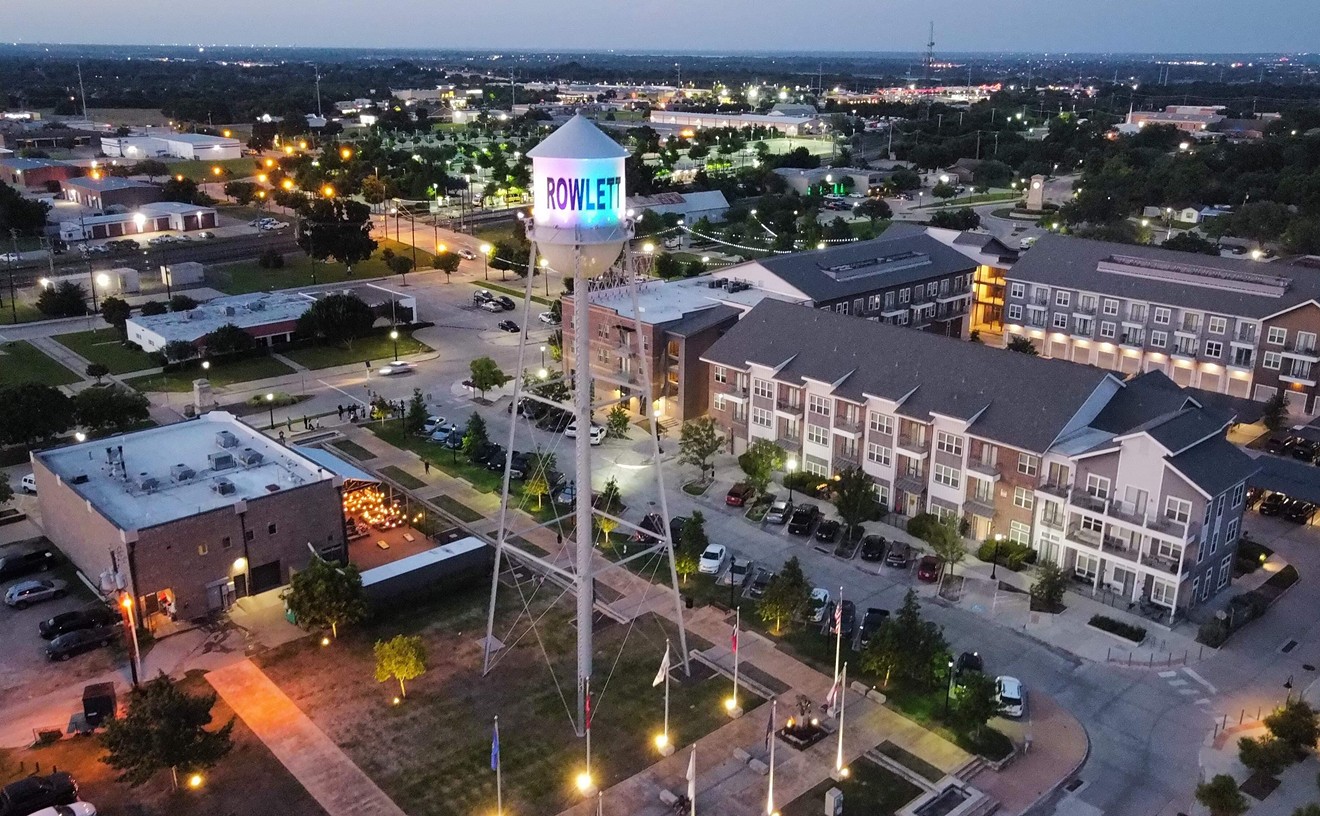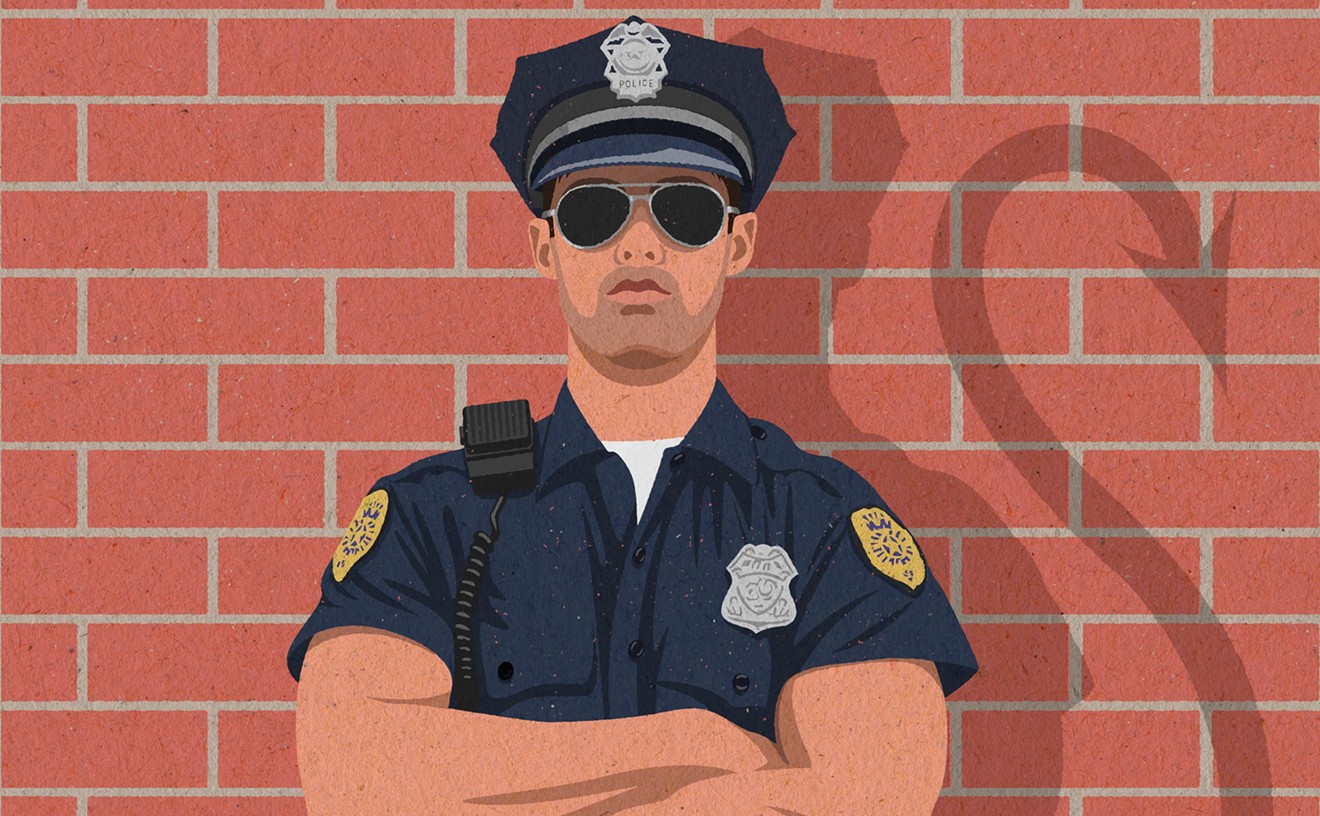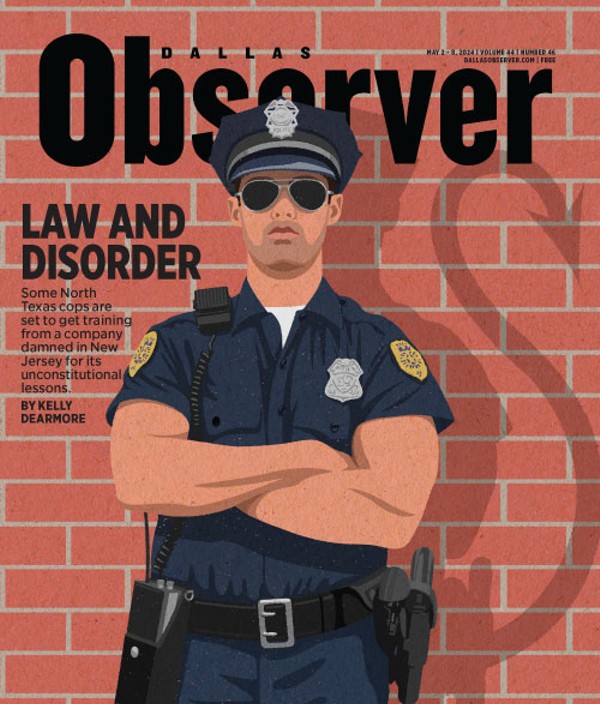In Missouri, the stupid cruelty played out on Yik Yak, a location-based messaging app that allows users to anonymously broadcast whatever thoughts may be lurking in their heads to strangers in their general vicinity. Two 19-year-old college students were arrested last week after allegedly posting death threats ("I'm going to stand my ground tomorrow and shoot every black person I see" and "I'm going to shoot any black people tomorrow, so be ready"), apparently unaware that Yik Yak could/would rat them out to police. (They scored slightly higher on the stupid vs. cruel side of the equation.)
Anonymous messaging apps aren't just a thing in Missouri — Yik Yak was used to great effect last year at SMU to marshal opposition to a proposed LGBT student senate seat — and they aren't confined to college campuses. They tend to proliferate wherever there is a high concentration of people with both smartphones and underdeveloped prefrontal cortices, e.g., the Iowa caucuses, open carry rallies and, in this instance, high schools.
Last week, shortly after Missouri police had finished rounding up the alleged Yik Yak threat-makers, officials at Bishop Dunne Catholic School, the prep school in Oak Cliff, emailed a letter to parents warning them of a new, Yik Yak-like app that's been proliferating on campus."We want to make you're aware of a social media app that has been making the rounds called After School," school President Kate Dailey and technology director Paul Wood wrote. "This app has a 17+ rating and allows students to post comments and media anonymously. We have found that the school and parents do not have any way of joining this app community or moderating it. Although the company claims that the app allows parents to lock its use, our tech experts have been unsuccessful in doing so."
The school has attempted to block the app, the letter continues, but has been foiled by After School's use of Amazon hosting services, which means "the IP addresses could change on a regular basis, negating our ability to control access. As this app resides mainly on cell phones, where we have no control at all, we are not in a position to block this app." The letter warns parents of privacy concerns. The app requires access to kids' Facebook profiles to authenticate they are indeed Bishop Dunne students and not snooping parents or school administrators. If users want to view "'locked' content that is sexual and explicit in nature," they must scan their driver's licenses to prove they are at least 17.
"This means that private identification information has now been sent via the Internet without proper security precautions," Bishop Dunne officials write. "Someone could very easily steal your child's identity and could also gain access to your home address and any other data tied to your State of Texas records.
"We strongly encourage you to speak with your child about this program and to not participate in this online community."
Just in case you teenagers out there don't understand the full gravity of the situation, let's review: After School is an app that is being used heavily by your peers. Parents are totally unable to monitor its content, and school officials are powerless to block access. It provides easy access to sexual/explicit content, and using it is basically guaranteed to send the adults in your life into spasms of panic. To translate this into simpler terms: WHY ISN'T THIS APP ALREADY ON YOUR PHONE?!?
To be sure, After School's anonymity and popularity among teenagers create the potential for bullying and abuse. The app was yanked from Apple late last year after reports of bullying and multiple threats of gun violence. It made a comeback in the spring, with the company's COO touting new safety features, including the driver's-license scan for viewing mature content, enhanced parent controls and a promise that every post will be reviewed by an adult After School employee before being published. There are also new community guidelines, though some of these (i.e., "Be PG (or maybe PG-13)") seem to be at odds with the app's 17+ age restriction in the App Store.
After School released a statement over the weekend, included below, addressing some of the concerns outlined by Bishop Dunne officials. The app makers say they are happy to work with parents and schools to control access to the app and ensure a safe experience. They also provide their IP addresses so that schools can block it.
In any case, for all the concerns surrounding this app — and the capacity to anonymously bully, in particular, seems like a legitimate cause for concern — it's important to remember that After School and its ilk aren't exactly changing the nature of teenage behavior, that kids can't catch an STD through social media, and that, if it's really that bad, parents can always take away their iPhones.
Here's After School's full statement:
We are firmly on the side of our schools and parents and are always willing to work with our school communities. We have taken many steps to ensure safety within our communities. We understand their concerns and ask that schools feel free to contact us and work with us through these concerns as many other schools, administrators, and nonprofit organizations have.
We have implemented features to protect students and offer unique opportunities that we hope will become industry standards, including offering a live helpline for students, that has already helped well over 50,000 teenagers (see support feature attachment). We have partnered with school administrators, nonprofit organizations, and others to ensure we’re providing a positive and safe environment for students, including adding the new anti-cyberbullying emoji created by the Ad Council for the #IAmAWitness campaign, aimed at engaging the majority of social media users who witness bullying but do not stick up for their peers who are being bullied.
Parental Controls
There are two ways parents can restrict access to social media applications if the app creators have created in-app restrictions, as After School has. Parental controls can be accessed through Apple device restrictions. Here is a link explaining how to restrict access to App Store Apps.
We also allow parents to restrict access to the app using the lock feature. Parents can create a password to restrict access and create a password to disallow students from changing the settings. Please see the attached image of the lock feature screen.
Verification
Information from drivers’ licenses is not collected or sent anywhere.
Entering in a date of birth to access apps is not an efficient protective measure due to the ability to put in a false date of birth. By scanning a license, age can be verified. None of the information is stored, and this can be tested by placing the phone in airplane mode and using this feature. No data from a driver’s license is stored on our servers.
School Information
After School respects the intellectual property rights of others. As advised by counsel, reference to the school’s name does not constitute trademark infringement. Use of the name is a fair descriptive reference to a group comprised of students, and this helps identify the students who are part of a closed network, to protect them from those not part of that high school community.
Blocking Access to After School
We assist schools in blocking our app if they choose to do so. If the school would like to ban After School on their network, they can do so by blocking our IP addresses.
Our IPs are:
107.22.247.12
54.243.188.164
107.21.113.133
For Apple computers, run: dig api.onemainframe.com to see the list of IP addresses that the app uses at any given time.
Further Response to Letter
We do agree with school representatives from Bishop Dunne that it’s important to open a line of communication between parents and students about the proper use of social media and how it can be used in a positive manner. There are many benefits of social communities and technology-enabled communication and we are working to make After School the most beneficial and safest social network available to teens.










